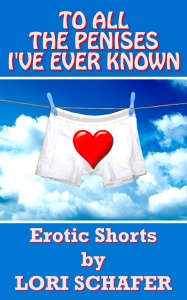It’s the first of January again, and all over the
world, people are making personal resolutions for 2015. Amazing what a date can
do, isn’t it? Millions of humans scattered around the globe, all simultaneously
attempting to better their lives by altering their own behavior in positive
ways. For many, a new year offers an incentive, a reason to push towards self-improvement
or greater satisfaction with one’s life and one’s being. And what better day to
feel as if you’re starting over than New Year’s Day? It’s a day of reflection
on the year gone by and on the year yet to come. It’s a day in which to
consider whether we’re moving towards the goals we’ve set for ourselves, or
whether we need to change the paths we’re on in order to come closer to
achieving them. And the making of resolutions is perhaps the vital final step
of this process, because there’s little point in evaluating the state of our
lives if we don’t then utilize our conclusions to bring us one step closer to
happiness.
The trouble with the New Year’s resolution is that,
by its very nature, it doesn’t take effect until after the end of the current year.
And in a backhanded way, this encourages us to wait to act upon our resolve. We
don’t exercise in December because we’ve decided to get in shape after the
holidays. We don’t quit smoking in October because, without the motivation of
the New Year’s resolution, we’re afraid we’ll fail. We don’t start tucking
money away in August for that dream vacation we’ve always wanted to take,
because there’s school clothes shopping to do, and then the holidays are coming
up, and once again, we’ve postponed that project to another year.
And then what happens when we, as we inevitably
must, fail to keep some of those resolutions we made in so much earnest? We
wait again. We try again – the following year. How much of our lives are wasted
waiting for this imaginary turning point to roll around so that we can make
those changes we believe are so vital to our well-being and sense of
fulfillment?
This is the core of the problem with marking time in
our lives by special occasions – it causes us to neglect all of the everyday
occasions that would have served us equally as well in helping us to attain our
goals. Maybe your sweetheart expects you to present her with flowers on Valentine’s
Day, but she’ll be much more impressed by the bouquet you bring in November.
Chocolate cake is sweeter when it’s not baked on your birthday. Why wait until
New Year’s Eve to have a beer and hang out with your friends? Won’t your mom be
more pleased if you call her in March just to chat, then if you wait until May
to wish her a Happy Mother’s Day?
I don’t ever want to wait until January 1st to
change my life. I might want to quit my job on July the 15th, or start writing
a book on September the 24th. It doesn’t need to be the first of the year or
the first of the month before I decide to move forward with my resolutions; any
given Monday will do. I’ll derive just as much joy from turning my life around
at 3 o’clock on a Tuesday afternoon in June, as at midnight on a Thursday in
January.
So that’s my New Year’s resolution. Never again to
wait for a new year to arrive before I make my resolve. Never again to pretend
that January will be soon enough for me or my life to change. It isn’t.





